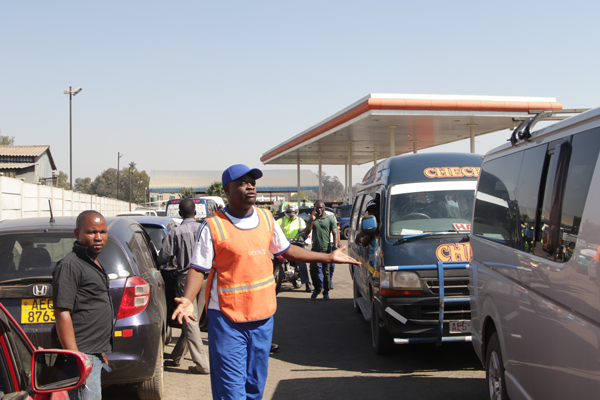

BY RUTENDO MATANHIKE
HARARE was at a standstill yesterday as the majority of fuel service stations did not have the commodity, putting into jeopardy many people’s plans for the holiday.
Zimbabwe has been experiencing acute fuel shortages for almost a year now due to lack of foreign currency, but the situation seemed to take a turn for the worse this past week.
The few service stations that were selling fuel had long and winding queues.
A motorist, Shepherd Gwasira, said he had been forced to cancels plans to travel outside the capital because of the fuel shortages.
“We feel helpless in the current situation of fuel shortages in the country as this has caused us to continue waiting for long periods of time,” he said. “I had planned to go on holiday with my family, but since 5am, I have been queuing for fuel.
Tonderai Kurai bemoaned corruption at service stations, saying attendants were taking advantage of the situation to solicit for bribes.
“Some of the fuel is being diverted to the black market from the service stations causing the long queues to move slowly,” he said.
- Chamisa under fire over US$120K donation
- Mavhunga puts DeMbare into Chibuku quarterfinals
- Pension funds bet on Cabora Bassa oilfields
- Councils defy govt fire tender directive
Keep Reading
“The fuel stations are supposed to be pumping fuel simultaneously to different customers to save time, but we have been in the queue since early morning. “By now we should have received service, but we are still here.”
Some motorists said they had been in fuel queues for over 10 hours.
Zimbabwe Energy Regulatory Authority acting CEO Eddington Mazambani last week told Parliament of a standoff between the Zimbabwe Revenue Authority and fuel supplies over duty payment.
The companies stopped taking delivery of fuel from Msasa and Mabvuku soon after Finance minister Mthuli Ncube reviewed the fuel duty model on August 1.
Duty on fuel is now percentage-based on the total costs of bringing the commodity compared to the previous fixed amount.










